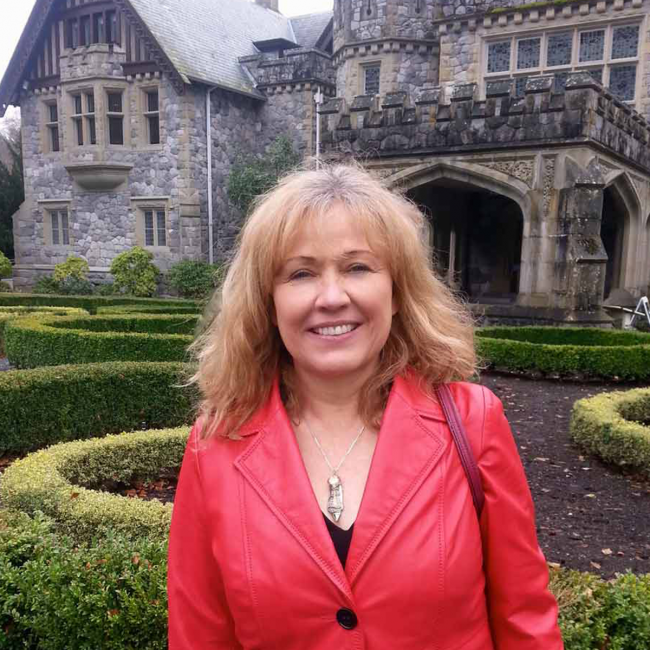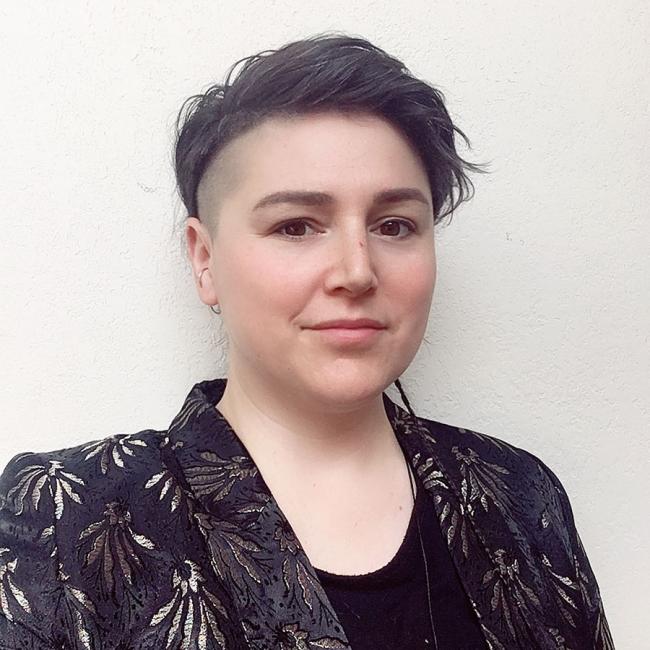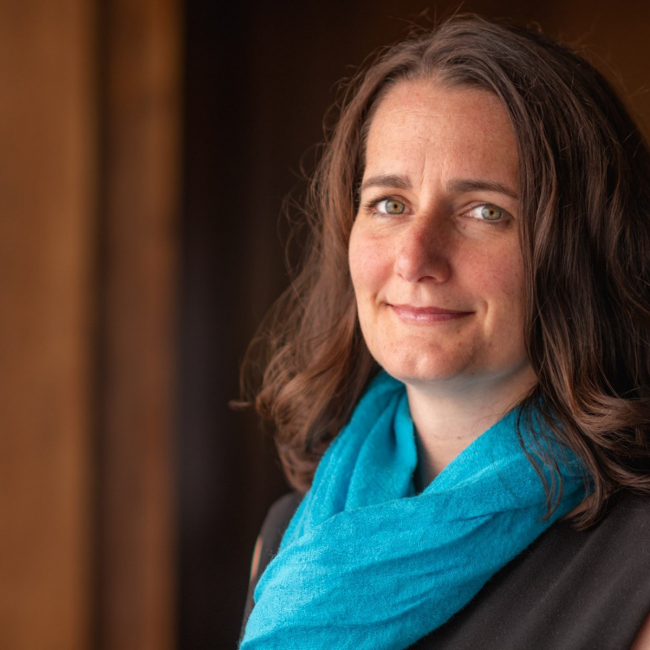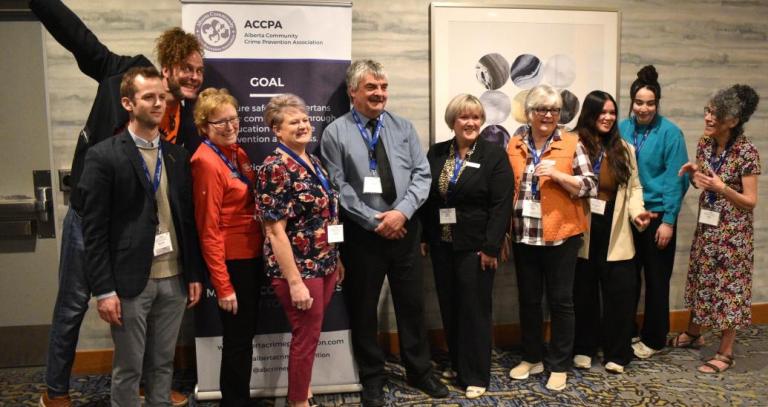Gain practical knowledge of Canadian public policy on criminal justice, Indigenous perspectives of justice and restorative justice. Examine rights, advocacy, gender and alternative dispute resolution.
You're a current or aspiring professional in a justice institute like law enforcement, victim services, or a legal department.
Complete your undergraduate degree on campus in 12 months, or through a blend of online courses and on-campus residencies in 24 months.
Learn to apply integrity, initiative, perseverance and compassion to your work to drive social change.
Upcoming offerings
August 24, 2026
Program variation
Application deadline ℹ
Delivery model
Entry point
Domestic tuition
International tuition
Related Schedules
September 08, 2026
Program variation
Application deadline ℹ
Delivery model
Entry point
Domestic tuition
International tuition
Related Schedules
Request more information
Gain a practical understanding of contemporary justice issues
Explore the the Canadian justice field and gain a practical understanding of contemporary justice issues.
You’ll study global justice and Indigenous perspectives on justice, learning to apply integrity, initiative, perseverance, and compassion to create social change.
Your classmates could be from government, policing, military, for-profit/non-profit and international organizations, all committed to solving complex social issues.
You can expect to gain:
- a solid understanding of the Canadian legal system
- in-depth knowledge of the justice system including criminal justice, human rights, advocacy, gender and identity, and alternative dispute resolution
- hands-on training in alternative dispute resolution practices
- a network of colleagues and support you can turn to for the rest of your career
Program outcomes
Once you have completed this program, you'll have skills like critical thinking, communication and professional practices that will enable you to work in sectors like criminal justice, social justice, advocacy and human rights, conflict management, alternative dispute resolution and community development.
Some graduates continue their education at law school, while others pursue graduate degrees.
You can build from here
Many graduates continue with one of our master's programs in Justice Studies, Conflict Analysis and Management, or Human Security and Peacebuilding. You also have the option to apply directly to the Master of Laws (LLM) program at the University of London.
Study on-campus, or through a mix of online and on-campus learning
On-campus, 12-month option
Accelerate your studies through a 12-month, full-time, on-campus offering. You'll start in September and end the following August, attending classes five days a week, from 8:30 a.m. to 5:30 p.m.
You'll take five courses in each of the four terms, with brief breaks between each term, to complete a total of 60 credits.
Studying on campus will provide you with:
- a cohort-based learning environment that fosters and supports successful learning through social interactions
- team-based learning, and coaching to improve team skills
Blended (online and in person), two-year option
Complete this degree in two years through a blend of online learning and two on-campus residencies, for a total of 60 credits.
Online learning
Online courses include readings, live or recorded sessions, discussions, and individual or team assignments. You’ll begin with a required non-credit course on academic integrity.
You’re expected to meet deadlines and actively contribute to class. You’ll take one online course at a time for a period of nine weeks. Each online course requires approximately 20 hours of work per week.
Residencies
This blended program has two immersive on-campus residencies: a three-week residency in year one, and a two-week residency in year two.
Residencies are intensive and immersive. Many students say this time together is the highlight of their program.
During your residency, you can expect to:
- attend classes full-time (e.g., Monday to Friday from 8 a.m. to 5 p.m.)
- complete homework and individual and team assignments outside of class hours
- take part in extracurricular activities
Pathways into the BA in Justice Studies
You can start your journey toward a Bachelor of Arts in Justice Studies in more than one way. Whether you’re coming straight from high school or already have post-secondary or work experience, there’s a pathway that fits your background and goals.
Option 1: Start with an RRU undergraduate diploma
For students coming from high school.
If you’re just beginning your university studies, start by building your foundation through one of Royal Roads’ two-year undergraduate diplomas. These programs include hands-on learning and practical experience that can lead directly into the program once you meet admissions requirements.
Option 2: Enter directly into the BAJS program
For students with prior post-secondary or work experience.
If you’ve already completed university credits, a college diploma, or have relevant work experience, you may qualify to enter the program directly.
Our flexible admissions process considers your academic background, work experience, and life learning—not just your grades.
Want to chat about your options?
Courses
Faculty

Associate faculty

Associate faculty

Associate faculty

Associate faculty

Associate faculty

Associate faculty

Associate faculty

Associate faculty

Associate faculty

Associate faculty
Transfer agreements
Refine results
Standard admission
A relevant two-year diploma program (or 60 credits) with a minimum of 24 second-year credits, with a minimum GPA of 'B' (3.00/4.33), from a recognized post-secondary institution.
Flexible admission
Applicants may be assessed for admission on the basis of their skills, knowledge, and background developed outside traditional learning structures or through a combination of academic and non-academic experience.
This would normally include evidence of:
- at least five years of relevant work experience in an area related to justice,
- a combination of academic achievement and relevant work experience,
- an ability to demonstrate the competencies expected of a graduate with a relevant two-year diploma.
English language proficiency
If English is not your primary language, please review our English language requirements.
Application requirements
Before your file can be assessed for admission, the following information & supporting documents are required for entry to third year.
Application form
In order to apply online, you will be required to create a log-in account using your email address. You will be required to list all credit courses and/or programs you have completed or are currently enrolled in. An application fee will be required. If your application fees are being paid by a third party, review sponsored student information. Once submitted, you may check the status of your application at any time.
Missed your application deadline? While we can’t make any guarantees, we may be able to accommodate late applications if there's still space and enough time to process. If you're interested in an intake that is now closed to applications, apply for the next available intake and email Admissions with your preferred start date. Make sure you’re prepared to submit your program's required documents right away. We can't make an admissions decision without them.
Official transcripts
Applicants are responsible for arranging for the submission of official transcripts from ALL post-secondary (higher education) institutions currently or previously attended, for all credit courses and/or programs. Transcripts are not required for non-credit programs or courses, though some programs may require proof of professional certifications or designations.
Transcripts are considered official only if submitted directly by the Registrar or other recognized authority of the providing institution in the institution's original, sealed envelope. If the envelope has been opened, the transcripts are no longer official and new (official) transcripts will be required to complete your application.
All international transcripts or credentials are subject to an international transcript and/or credential evaluation.
Additional requirements for flexible admission
For applicants who will be reviewed under the flexible admission process the following additional supporting documents will be required:
Personal statement
Your personal statement should be no less than one page and it should indicate your motivation for applying to the program by addressing the following four questions:
- Why do you want to enroll in the Justice Studies Program?
- What strengths do you bring to the program?
- What experience do you have with distance education and self-directed study?
- Upon completion, how do you want to apply your degree?
Letter of reference
Typically, applicants will provide one reference from a current or past employers, or those who have known you in an academic or volunteer setting. Although personal references are considered as part of the application, an emphasis is placed on professional and academic references.
- Professional reference: This letter should attest to your current or previous performance in your professional life. The letter can address areas such as communication skills, interpersonal and leadership skills, management potential, work ethic, etc.
- Personal character reference: A personal character reference should consist of a letter from someone who has known the applicant for several years such as a friend, coach, employer, etc. The writer must indicate the length of time and context in which they have known the applicant and consider the following attributes in the letter: compassion; empathy; integrity; equal concern and respect for others; initiative; adaptability; maturity; responsibility; continuity and perseverance.
- Academic reference: This letter should attest to the applicant’s performance in the context of their current or previous studies. The letter can address such areas as academic achievement, study skills, teamwork, leadership potential, human relations, flexibility, communication, and technical skills.
Structured résumé
- Post-secondary education: List all post-secondary education, degrees, diplomas, and certificates you have achieved.
- Work experience: Please include name of organization, position, length of service (month and year), and a brief description of duties.
- Training and professional development: List career related training and professional development programs completed with the past five years. Include the source of training, and the duration and year completed. List other training and personal development programs not already identified.
- Voluntary/unpaid work experience: List and describe any voluntary/unpaid post-secondary employment and/or community service experience. Please include name of organization, length of service and a brief description of duties.
- Professional memberships/affiliations: List memberships and positions you hold/have held in professional associations, service clubs, community/volunteer sector.
- Other relevant information: Provide any other information which you believe is relevant to your application and will be of assistance to the review committee.
If applicable
- Applicants declaring permanent resident or Convention Refugee status in Canada, must submit a copy of their Permanent Resident Card (PR card) along with their application.
- Transcript evaluation fee or credential evaluation report, if submitting international transcripts.
- An official English language proficiency score report or other evidence of proficiency if English is not your primary language.
- Other information or documents as may be requested to determine your eligibility.
For information on how and where to send your supporting documents, please refer to the document submission guidelines.






